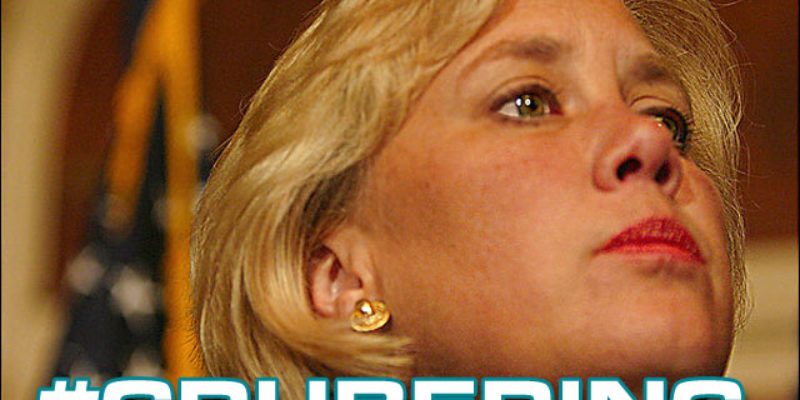Almost two years ago this space identified data showing Sen. Mary Landrieu’s reelection bid was in trouble. As more became available, some 375 days ago it noted “it’s now questionable that she isn’t a distinct underdog.” Eight months ago, speaking to Landrieu’s (as the headline read) “desperation,” data were to the point that this space could declare “It’s now Rep. Bill Cassidy’s 2014 Senate race to lose.” Her defeat for reelection tonight only validates what was obvious for a long time.
Recently noted was the main reason Landrieu lost, and convincingly so: societal and technological changes made this kind of election evolve into one where ideology became important, and with Landrieu being so out-of-touch with the state’s majority no amount of fig leaves courtesy of a few deliveries of pork and lip service about energy could cover the massive number of ideological warts her voting behavior blemished into her.
And you didn’t need polling data to understand the environmental dynamics that, at best, made her even money odds to retain the post to begin with as soon as Cassidy entered the contest. She faced a well-financed challenger (of course, understand that candidates that can snare a lot of donations demonstrate they are quality to begin with) as the state continued to turn more conservative in its political behavior (witness increasing Republican registrations and rapidly declining numbers of registered Democrats) in a year where no winning presidential candidate could juice turnout for her or during a midterm election without a president of the other party to give reason to vote for her as means of voting against him (typically in midterm elections the party of the president loses seats in Congress, almost always in the House but more often than not in the Senate, for this reason). The situation for her was marginal already without including a disastrous voting record.
Yet now what should seem absolutely obvious the pundit class in large part continues to scratch their heads about or seem unable to get their arms around. If it’s not the confusing of an ideological election with one that is “nationalized” as the term by which to understand the election’s dynamics – erring by assigning primacy to short-term campaign tactics rather than realizing the long-term underlying causes – it’s misdiagnosing in thinking if the contest is “about the two candidates, then Landrieu has a shot. If it’s all about partisanship, Cassidy has the overwhelming advantage.” Not in the least: if we evaluate on the basis of the “two candidates,” Landrieu had no chance because her credibility as a candidate who fit Louisiana’s values was shot the moment she became the decisive vote for the Patient Protection and Affordable Care Act when not only to those who cared to access objective analysis at the time pointed out what a train wreck it would become, but that its designers knew all along its promises of cost efficient, better care were fraudulent.
That vote especially hurt Landrieu precisely because of the tightrope she walked in terms of her being divulged as a fraud. A public inattentive enough to catch on to her consistently voting as a liberal got alerted to this at that point, and she could not recover precisely because these subsequent votes gave her no chance to reverse the perception that she too often voted against the majority’s interests. Nor she did ever get any cover or assistance from her own party and Pres. Barack Obama, who kept putting her into tight spot after tight spot, negating any narrative she could muster that she was not tied to the liberal agenda, either because she agreed with it or because she was ineffective on the rare occasions she tried to resist it.
While just about every state media pundit was missing this, it’s instructive that an outsider caught it, and provides perhaps the best summary of why Landrieu got pummeled:
“There was a time when every election in Louisiana was a personality election. But this runoff proves that in the world of cable news … every Senate election is a national election,” said Republican strategist Brad Todd …. “You just can’t hide a partisan record in D.C. with a pothole campaign back home. No amount of cornbread will cover up even a little bit of Chardonnay.”
Precisely. She’s been lucky in the past in terms of opponents, timing, and issues. That luck ran out tonight. The only surprise was that it took 18 years for that to happen.
Advertisement
Advertisement

